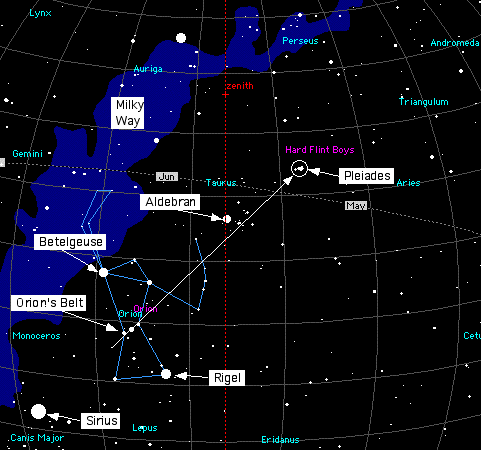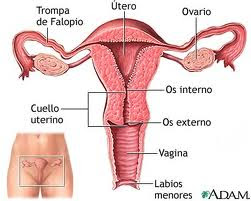|
|
TABERNACULO =TEMPLO DE SALOMON = KAABA = GIZE= VATICANO= WASHINGTON D.C = NUEVA JERUSALEN = JUAN MARCOS
CENACULO DE JERUSALEN=SAN MARCOS
APOCALIPSIS 21
NU-EVA J-ER-U-S-A-LE-N /JUAN
EVA (NUMERO NU-EVE)=MARIA MAGDALENA O MARIA LA GRANDE
JUAN MARCOS=SANTO GRIAL
9. Vino entonces a mí uno de los siete ángeles que tenían las siete copas llenas de las siete plagas postreras, y habló conmigo, diciendo: Ven acá, yo te mostraré la desposada, la esposa del Cordero. (Noten la relacion de la COPA CON LA ESPOSA DEL CORDERO)
10. Y me llevó en el Espíritu a un monte grande y alto, y me mostró la gran ciudad santa de Jerusalén, que descendía del cielo, de Dios,
11. teniendo la gloria de Dios. Y su fulgor era semejante al de una piedra preciosísima, como piedra de jaspe, diáfana como el cristal. (LA "GLORIA DE DIOS" es una clave sabatica en contexto a EXODO 24 Y 25. Se vuelve a repetir el patron del libro de EFESO EN SU CAPITULO 5.)
12. Tenía un muro grande y alto con doce puertas; y en las puertas, doce ángeles, y nombres inscritos, que son los de las doce tribus de los hijos de Israel;
13. al oriente tres puertas; al norte tres puertas; al sur tres puertas; al occidente tres puertas.
14. Y el muro de la ciudad tenía doce cimientos, y sobre ellos los doce nombres de los doce apóstoles del Cordero.
ESTRELLA DE DAVID ES LA ALQUIMIA, OSEA LA UNION ENTRE EL HOMBRE Y LA MUJER

  

(ABCD) Double Square in Solomons Temple
EL LUGAR SANTISIMO DEL TABERNACULO Y DEL TEMPLO DE SALOMON TENIA FORMA DE CUBO
NOTEN LA ESTRELLA DE 5 PUNTAS EN EL CENTRO DEL EXAGONO CENTRO DE LA ESTRELLA DE 6 PUNTAS
EL EXAGONO TAMBIEN ES UNA REFERENCIA AL CUBO.
NOTEN QUE EN ESTA ESTRELLA DE 6 PUNTAS HAY 13 TRIANGULOS DE 5 PUNTAS, OSEA QUE NOS DA UN NEXO CON LAS 12 CONSTELACIONES DEL ZODIACO, CON LAS 12 HORAS DEL DIA, CON LAS 12 LUNAS QUE HAY EN EL CALENDARIO, CON LA SANTA CENA EN EL CONTEXTO A LOS 12 APOSTOLES, CON LAS 12 TRIBUS DE ISRAEL, CON EL MERIDIANO DE GREENWICH E INCLUSO CON ROSE LINE, ETC,ETC. TODO TIENE COMO PATRON LA ESTRELLA DE 6 PUNTAS, OSEA LA UNION ENTRE EL HOMBRE Y LA MUJER QUE LA TRADICION RELIGIOSA "OLVIDO". ESTE ES EL PATRON ESOTERICO DETRAS DE APOCALIPSIS 22 EN SU RELACION CON VENUS.

Noten el MONSTRUOSO NUMERO 36, incluso con la FORMA DE ORION, en una estrella de 6 puntas. Son siete pelotitas, con 6 perimetrales. 6x6=36
AQUI ESTA EL ULTRA SECRETO DEL NEXO 666 CON LA PIRAMIDE DE LOUVRE, EN EL CODIGO DA VINCI. 1+2+3+ 4+5+6+7+8+9 +20+11+12+13 +14+15+16+17+18 +19+20+21+22+23 +24+25+ 26+27+28+29 +30+31 +32+33+ 34+35 +36=666

15. El que hablaba conmigo tenía una caña de medir, de oro, para medir la ciudad, sus puertas y su muro.
16. La ciudad se halla establecida en cuadro, y su longitud es igual a su anchura; y él midió la ciudad con la caña, doce mil estadios; la longitud, la altura y la anchura de ella son iguales. (LA CUBICACION DE UNA ESFERA. HAY UN OBVIO NEXO ALQUIMICO. LA GRAN CIUDAD ESTA DISEÑADA CON EL MISMO PATRON DE LA GRAN PIRAMIDE DE GIZE)

Figura 16. La relación geométrica entre el codo real y el metro.
LA CLAVE MATEMATICA ESTA EN LA ECUACION:
PI-(PHI ELEVADO AL CUADRADO)=CODO REAL
 |
|
3.1416 - 2.61800 = 0.5236
|
3.1416-2.618=0.5236
CODO REAL=.5236
ESTE ES EL SECRETO DEL NEXO "ROSE LINE", EN EL CONTEXTO AL METRO Y EN EL CONTEXTO A LA PIRAMIDE DE LOUVRE.
17. Y midió su muro, ciento cuarenta y cuatro codos, de medida de hombre, la cual es de ángel.
21. Las doce puertas eran doce perlas; cada una de las puertas era una perla. Y la calle de la ciudad era de oro puro, transparente como vidrio.
22. Y no vi en ella templo; porque el Señor Dios Todopoderoso es el templo de ella, y el Cordero.
23. La ciudad no tiene necesidad de sol ni de luna que brillen en ella; porque la gloria de Dios la ilumina, y el Cordero es su lumbrera.


Haz clic en la imagen para volver
INICIACIÓN A LOS NÚMEROS DE LA ARQUITECTURA O DE COMO DARLE FORMA A UN EDIFICIO
Los números pueden estar explicados matemáticamente en la “red” pero el problema que plantea el conocimiento de la arquitectura es: ¿cómo se le da forma con esos números a un edificio?. En arquitectura los números operan a partir de los polígonos estrellados formando concatenaciones, tal y como a continuación vamos a describir.

NÚMERO DE ORO - PENTÁGONO
El número de oro viene dado por la solución a la ecuación de segundo grado
x + x² = 1 x = 1+√5 /2 = 1,618033989
Propiedades 1/ 1,618 = 0,618 1,618... x 1,618... = 2,618...
Dado una circunferencia de radio 1 el lado del decágono inscrito en él es 0,618...
Dado un pentágono de lado 1, las diagonales de ese pentágono = 1,618...
La técnica con la que opera la arquitectura es la de las concatenaciones.
Una de ellas, la más usual, es la que presentamos en el dibujo. Si la circunferencia en color azul tiene R=1 el radio de la roja es R= 2,618, correspondiente a la que presentamos en “El vitruvio” de Leonardo da Vinci en la portada de este trabajo.
Se aplicará en la restitución de una tabla de F. Brunelleschi Nº 6.
 
NÚMERO DE PLATA - EL OCTÓGONO
Así como el número de oro está asociado a la √5 el número de plata está asociado a √2 y presenta una serie de propiedades similares a las del número de oro.
√2 = 1,414213562 tg. 22,5º = 0,414213562
tg.67,5º = 2,414213562
1/2,4142... = 0,4142... 2,4142... x 1,4142... = 3,4142...
Observa nuevamente la concatenación, esta vez con el octógono, de la circunferencia en color azul sobre la de color rojo.
Si el radio de la circunferencia azul es 1 la de color rojo es 2,4142....
Si el radio de la circunferencia azul es 0,4142... la de rojo es 1.
Aquí tenéis un ejemplo.
Se aplicará en la Rix House de J. Soane Nº 3.
NÚMERO DE PLATINO - EL HEXÁGONO
De igual forma que el número de oro está relacionado con la √5 y el de plata con la √2, el de platino lo va a estar con la √3
√3 = tg.60º = 1,732050808
1,732... x 2,732... = 4,732...
Combinación, esta, muy utilizada por Andrea Palladio.
Observa la concatenación de la circunferencia azul sobre la de rojo, a través del hexágono, directamente a la circunferencia azul. Si el radio de la circunferencia color azul es 1 el de la circunferencia en color rojo es 2 y el lado del triángulo inscrito es 2 x 1,732...
Este polígono es el más prolífico en la historia de arquitectura como vamos a verlo en los ejercicios.
Aquí tenéis un ejemplo.
Se aplicará al resto de los trabajos Nº 1 - 2 - 4 y 5.
Todos los derechos reservados. Depósito Legal ZA - Nº 69 - 1998
Página web optimizada para ver en resolución de 1024 x 768
2006 - 2007
|
|
|
|
|
 Primer Primer  Anterior 2 a 2 de 2 Siguiente Anterior 2 a 2 de 2 Siguiente  Último Último  |
|
|
|
|
|
1/3-24/3 =24 DIAS
25/3-17/4=48 DIAS
18/4-11/5=72 DIAS
12/5-4/6 =96 DIAS
5/6-28/6 =144 DIAS (6.28=2X3.14) NEXO CON EL RADIAN
29/6-22/7=168 DIAS (DIA DE MARIA MAGDALENA 24X6)
23/7-15/8=192 DIAS (ASUNCION DE LA VIRGEN=227 GREGORIANO)
16/8-8/9 =216 DIAS (24X8 FIESTA DE LOS TABERNACULOS)
¿PORQUE LA CONEXION CON CHOLULA?
|
|
|
|
|

salt lake city=alchemy (salt)=dollar=$= LOT S WIFE (SODOMA AND GOMORRA)
Cathedral of the Madeleine
From Wikipedia, the free encyclopedia
The Cathedral of the Madeleine is a Roman Catholic church in Salt Lake City, Utah, United States. It was completed in 1909 and currently serves as the cathedral, or mother church, of the Diocese of Salt Lake City. It is the only cathedral in the U.S. under the patronage of St. Mary Magdalene.
Description[edit]
The cathedral was built under the direction of Lawrence Scanlan, the first bishop of Salt Lake City, who dedicated it to St. Mary Magdalene.[2] It was designed by architects Carl M. Neuhausen and Bernard O. Mecklenburg. The exterior is predominantly a Neo-Romanesque design, while the inside displays more Neo-Gothic details. Construction began in 1900 and was completed in 1909. It was dedicated by James Cardinal Gibbons, Archbishop of Baltimore.
It is theorized that Bishop Scanlan chose Mary Magdalene as the patron saint of the Diocese of Salt Lake because her feast day is on July 22, two days before Pioneer Day, a celebration commemorating the arrival of the Mormon pioneers in Salt Lake Valley, so that Catholics would have something to celebrate alongside the region's dominant faith.[3]
The interior of the cathedral was created under the direction of Joseph S. Glass, the second bishop of Salt Lake. Bishop Glass enlisted John Theodore Comes, one of the preeminent architects in the country, to decorate the interior of the cathedral. His plans for the interior were largely based upon the Spanish Gothic style. The colorful murals and polychrome were added at this time, as were the ornate shrines. In 1916, Bishop Glass also changed the name of the cathedral to the French spelling after visiting her purported tomb.[2]
In the 1970s, the exterior of the building was restored, and between 1991 and 1993, the interior of the cathedral was renovated and restored under Bishop William K. Weigand. This included not only the removal of dust and dirt and restoration of the interior but also changes to the liturgical elements of the cathedral to bring them into conformity with certain widespread changes in liturgical practice that developed after the Second Vatican Council.
This included constructing a new altar, moving the cathedra, creating a separate chapel for the Blessed Sacrament, and adding an ample baptismal font. The Blessed Sacrament Chapel also contains the tomb of Bishop Scanlan.[4] Resting atop the tomb is a case containing a small relic of Saint Mary Magdalene. The cathedral in Salt Lake City and the Basilica of Saint-Maximin-la-Sainte-Baume in France are the only cathedrals in the world holding first-class relics of the saint and are named in her honor.[5] The major restoration of the interior of the cathedral was accomplished through the vision of Monsignor M. Francis Mannion.[6]
The cathedral is home to the only co-educational Catholic Choir School in the United States. The Madeleine Choir School, established in 1996, now serves over 400 students in Pre-Kindergarten through Grade Eight.[7] The Cathedral Choir has recorded several CDs and routinely tours both nationally and internationally. In addition to singing daily services at the Cathedral of the Madeleine, choristers have sung at St. Peter's Basilica (Vatican City), Notre Dame de Paris (France), and in churches across the United States of America, Spain, Italy, France, Belgium, and Germany, among other places.[8]
Composer Amédée Tremblay notably served as the church's organist from 1920 to 1925.[9]
-
-
Cathedral of the Madeleine, looking east
-
Interior of the cathedral
-
   |
|
|
 Primer Primer
 Anterior
283 a 297 de 312
Següent Anterior
283 a 297 de 312
Següent Darrer
Darrer
|

